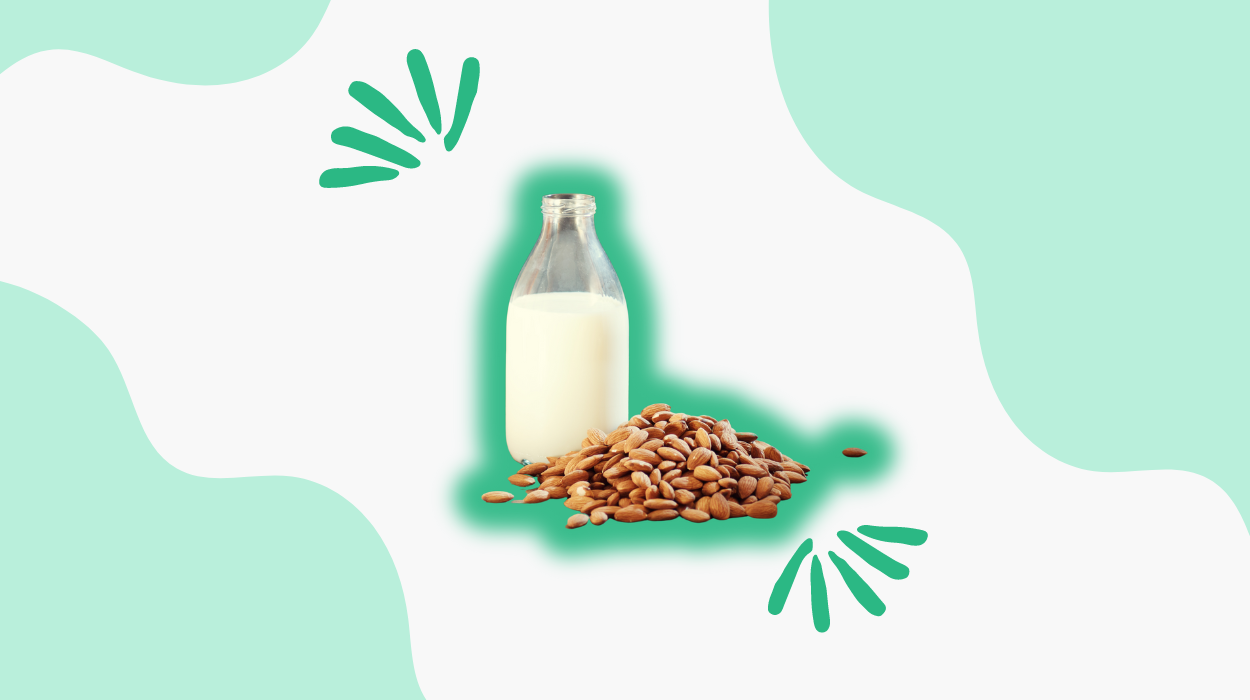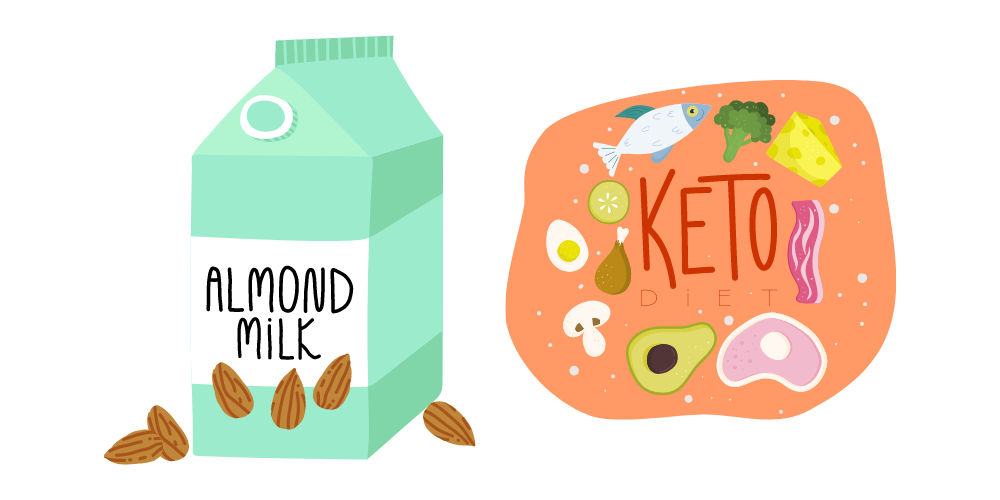

The keto diet is a restrictive eating plan, requiring strict adherence to a high-fat, very low-carb diet. This diet can be challenging, especially when finding satisfying foods and beverages.
Drinking milk or other dairy products can be unsuitable for people on a keto diet. Many types of milk contain carbohydrates that can quickly push you out of ketosis. But there are some excellent options for keto-friendly milk available on the market.
Almond milk has rapidly risen in popularity over the past few years due to its many beneficial qualities. With a deliciously nutty flavor and minimal calories, this plant-based beverage is an excellent alternative to dairy milk for those looking to reduce their calorie intake or avoid lactose altogether.
For making almond milk, the nuts are ground into a fine powder, then soaked in water until they soften and absorb all of the liquid. The mixture is then filtered to separate the solids from the liquid, resulting in a creamy, smooth beverage that is perfect for drinking on its own or using in recipes.
Almond milk contains several essential vitamins and nutrients vital for good health. It is rich in protein, antioxidants, calcium, and vitamin D.

Almond milk is popular, as it is lower in fat and cholesterol. What many people don’t realize, however, is that almond milk also contains a range of essential nutrients that can help to keep our bodies healthy.
In particular, almonds are high in protein and fiber, essential for overall health and wellness. With its rich nutrient profile and creamy texture, almond milk makes an ideal addition to any balanced diet.
Unsweetened almond milk contains just 1.4 grams of carbs per cup. Still, it also includes a wealth of beneficial nutrients like calcium and vitamin E.
Sweetened almond milk contains 16 grams of carbs and 15 grams of sugar. Sweetened almond milk is too high in carbs and sugar.
In addition, this almond milk helps support healthy bones and teeth, which is particularly important since many people on the keto diet tend to cut back on dairy products.
Almond milk is a popular dairy alternative that many rely on when following a keto diet. It is because almond milk contains very few net carbs, making it an excellent choice for those trying to stay within the keto guidelines. The number of net carbs in different varieties of almond milk can vary considerably.
Regardless of the variety of almond milk you choose, you must be mindful of the ratio of macronutrients you consume each day when on a keto diet. It means focusing on eating plenty of healthy fats and moderate amounts of protein along with your low-carb and high-fiber foods like almonds and almond milk.

Almonds are considered a good source of antioxidants through their polyphenol and Vitamin E content which might help you get rid of oxidative stress that may cause premature aging, heart issues, and many other health problems.
Thus, you may try to include almonds in your diet as it may help reduce oxidative damage symptoms like joint pain, headache, chronic fatigue, etc.
Vitamin E is abundant in Almonds and has been linked to reducing rates of Alzheimer’s disease and heart problems. It could provide around 37% of RDV and may further help promote optimum blood circulation in the body.
Consuming almonds in moderation could give your body a massive source of Vitamin E and may help in protecting your eye health.
Adding almond milk to your keto diet could also help in reducing the process of cholesterol oxidization. The excess amount of cholesterol build-up is followed by the process of cholesterol oxidation as it may cause inflammation inside the arteries’ walls that might lead to heart disease or atherosclerosis.
These nuts contain a good amount of magnesium nutrient that may play an essential role as it is required to provide the body with a good amount of energy. It may help in maintaining bone health and might help in maintaining smooth heart function by keeping its rhythm beating in a steady pattern.
Eating almonds or consuming them in their milk form could help in reducing hunger cravings by keeping you fuller and may also assist in watching your overall calorie intake. These nuts are a good source of fiber and protein both of which may help in suppressing your urge to eat more. Thus, adding almond milk to your keto diet may support your weight loss journey.
An excellent nutrition choice for everyone, almond milk offers a wealth of beneficial vitamins, minerals, and some essential nutrients that help your physical health. Besides being a great source of vitamin E and its antioxidant-ridden powers to reduce inflammation, it also provides plenty of calcium for strong bones and muscles.
Furthermore, almond milk is one of the best nutritional alternatives if you are vegan or lactose intolerant. Keeping your body nourished and full of fresh energy, this beverage has numerous advantages that we sometimes overlook.
This popular diet is based on consuming a high percentage of fat and very few carbs. To maintain optimum nutritional levels and achieve maximum results, strictly adhere to the recommended high-fat and low-carb intake.
One easy way to ensure you are getting adequate amounts of healthy fats while still following the keto diet guidelines, incorporate one or two cups of unsweetened almond milk or diet pills with natural ingredients into your daily routine. With its rich nutrient profile and mild flavor, almond milk is healthy and delicious, making it an ideal addition to any ketogenic diet plan.

Unsweetened almond milk is one of the best options when choosing a drink that fits into a keto diet. Not only is it low in carbs, making it an ideal choice for people following a low-carb eating plan. But it’s also loaded with healthy nutrients like calcium and vitamin E.
Fortunately, plenty of other keto-friendly dairy alternatives offer great nutritional value without packing on the extra weight. These options include hemp, pea, coconut, and soy milk, which are low in carbs and packed with nutrients.
When you’re on a keto diet, it’s important to carefully track your carb intake, as carbs are restricted in this type of low-carb eating plan. While there are many different approaches to a keto diet, one thing that tends to be consistent is that carbs from milk and milk alternatives must be limited. It can be challenging if you enjoy things like cereal or yogurt for breakfast or tea and coffee throughout the day. Most milk and milk alternative products are high in carbs.
However, there are still plenty of options for finding healthy milk and alternatives that fit into your keto diet. By sticking with unsweetened varieties such as almond milk or coconut milk, you can still get plenty of vitamins, minerals, and other nutrients while controlling your carb consumption. Just be sure to buy the right unsweetened milk products. Finding the right milk products for a ketogenic diet may take trial and error. Still, with persistence, you can stay on track with your keto goals.
